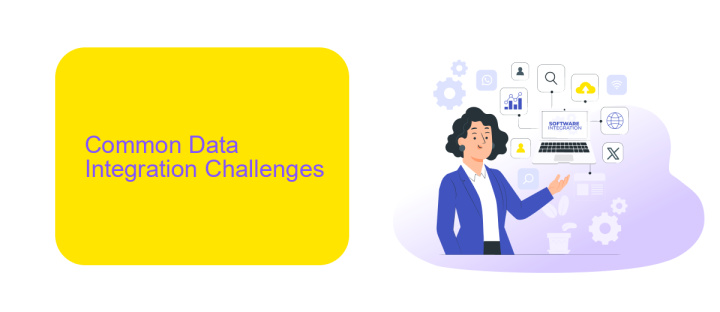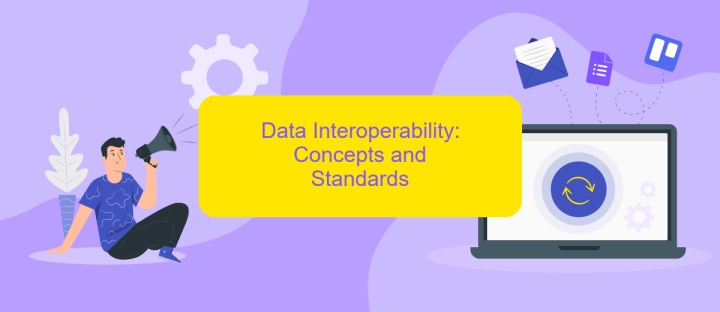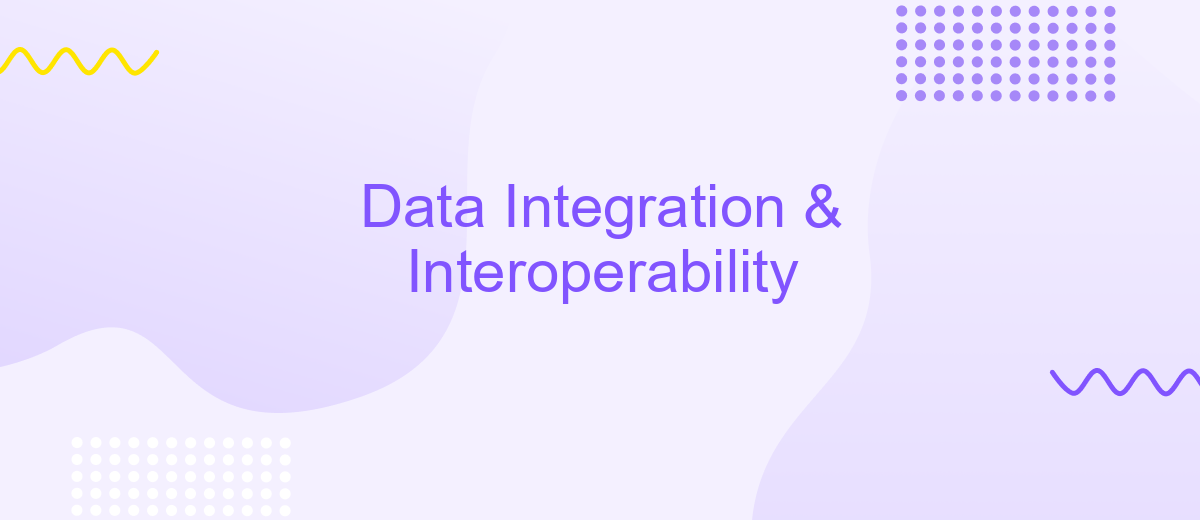Data Integration & Interoperability
Data integration and interoperability are crucial for modern businesses aiming to leverage diverse data sources for informed decision-making. By seamlessly combining data from various systems and ensuring they work together, organizations can unlock valuable insights, enhance operational efficiency, and drive innovation. This article explores the key concepts, challenges, and best practices in achieving effective data integration and interoperability.
Data Integration: Overview and Benefits
Data integration involves combining data from different sources to provide a unified view. This process is crucial for organizations to make informed decisions, enhance efficiency, and improve data accuracy. By integrating data, companies can break down silos and ensure that information flows seamlessly across various departments.
- Enhanced decision-making through comprehensive data analysis
- Increased operational efficiency by reducing redundant data entry
- Improved data accuracy and consistency
- Streamlined business processes and workflows
One effective tool for setting up integrations is ApiX-Drive. It allows businesses to automate data transfer between various apps and services without requiring coding skills. By using ApiX-Drive, organizations can save time and resources, ensuring that data is always up-to-date and accessible where needed. This leads to better collaboration and more strategic use of data across the enterprise.
Common Data Integration Challenges

One of the most common challenges in data integration is dealing with disparate data sources. Organizations often have data stored in various formats and locations, such as databases, spreadsheets, and cloud services. This fragmentation makes it difficult to consolidate data into a unified view, leading to inconsistencies and errors. Moreover, the process of extracting, transforming, and loading (ETL) data can be time-consuming and resource-intensive, requiring specialized skills and tools to ensure data quality and consistency.
Another significant challenge is ensuring data interoperability across different systems and platforms. As organizations adopt new technologies and software, integrating these with existing systems can become increasingly complex. Compatibility issues, differing data standards, and varying protocols can hinder seamless data exchange. Services like ApiX-Drive can help mitigate these challenges by providing automated data integration solutions that connect various applications and platforms, streamlining the process and reducing manual effort. By utilizing such services, organizations can achieve more efficient and reliable data integration, ultimately enhancing their decision-making capabilities.
Data Interoperability: Concepts and Standards

Data interoperability ensures that different systems and applications can work together seamlessly, exchanging and utilizing data efficiently. This concept is crucial for organizations aiming to integrate various data sources and applications to streamline operations and improve decision-making processes.
- Data Standards: Establishing common data formats and protocols to ensure consistent data exchange.
- APIs: Utilizing Application Programming Interfaces (APIs) to enable communication between different software systems.
- Middleware: Implementing middleware solutions to facilitate data integration and interoperability across diverse platforms.
- Data Governance: Ensuring data quality, security, and compliance through robust governance frameworks.
Tools like ApiX-Drive play a vital role in achieving data interoperability by offering a platform that connects various applications and automates data workflows. By leveraging such services, organizations can simplify the integration process, reduce manual efforts, and ensure that their data is consistently accurate and reliable across all systems.
Benefits of Data Interoperability

Data interoperability ensures that different systems and applications can communicate and share data seamlessly. This capability is crucial for organizations looking to leverage data from multiple sources to make informed decisions and improve operational efficiency.
One of the most significant benefits of data interoperability is the ability to integrate various data sources without extensive manual intervention. This integration can be achieved through services like ApiX-Drive, which automate the process and ensure data consistency across platforms.
- Enhanced data accuracy and consistency
- Improved decision-making capabilities
- Streamlined operations and reduced manual errors
- Increased flexibility and scalability
By adopting data interoperability, organizations can break down data silos and enable a more cohesive data ecosystem. This not only enhances collaboration but also provides a competitive edge by allowing quicker access to comprehensive data insights. ApiX-Drive plays a pivotal role in facilitating these integrations, making it easier for businesses to achieve seamless data interoperability.


Best Practices for Data Integration and Interoperability
Effective data integration and interoperability require a strategic approach to ensure seamless data flow between systems. Begin by establishing clear data governance policies that define data standards, formats, and protocols. This helps maintain consistency and accuracy across diverse data sources. Additionally, utilize robust ETL (Extract, Transform, Load) processes to consolidate data from various platforms, ensuring it is cleaned, transformed, and loaded into a central repository for easy access and analysis.
Leverage integration platforms like ApiX-Drive to simplify the process of connecting disparate systems. ApiX-Drive offers automated workflows that can synchronize data across multiple applications without the need for extensive coding. Regularly monitor and update these integrations to adapt to evolving business needs and technological advancements. Finally, ensure that security measures are in place to protect data integrity and privacy, including encryption and access controls, to safeguard sensitive information during transfer and storage.
FAQ
What is Data Integration?
Why is Interoperability important in data systems?
How can I automate data integration processes?
What are the challenges of Data Integration?
How do I ensure data security during integration?
Apix-Drive is a simple and efficient system connector that will help you automate routine tasks and optimize business processes. You can save time and money, direct these resources to more important purposes. Test ApiX-Drive and make sure that this tool will relieve your employees and after 5 minutes of settings your business will start working faster.

